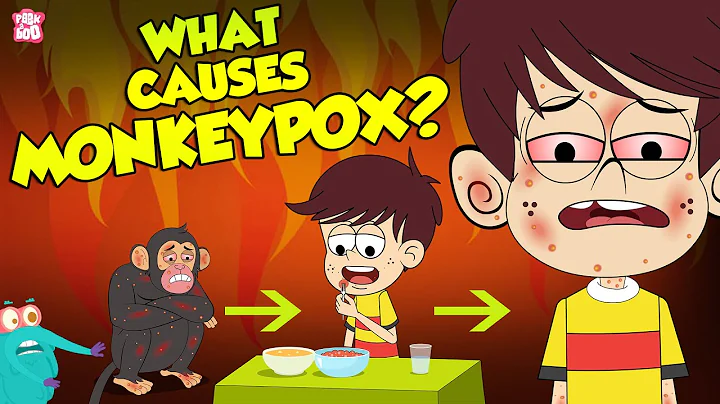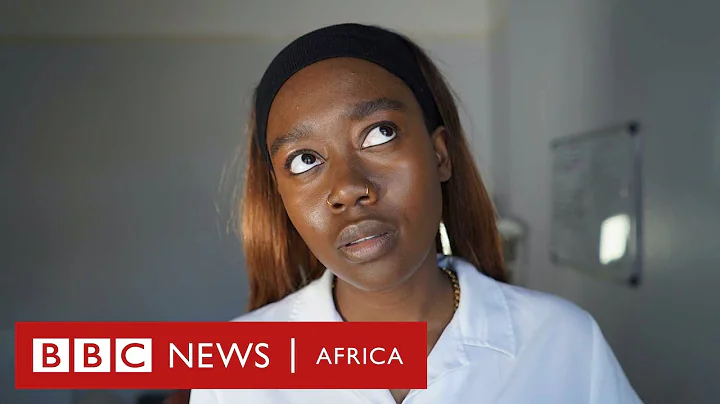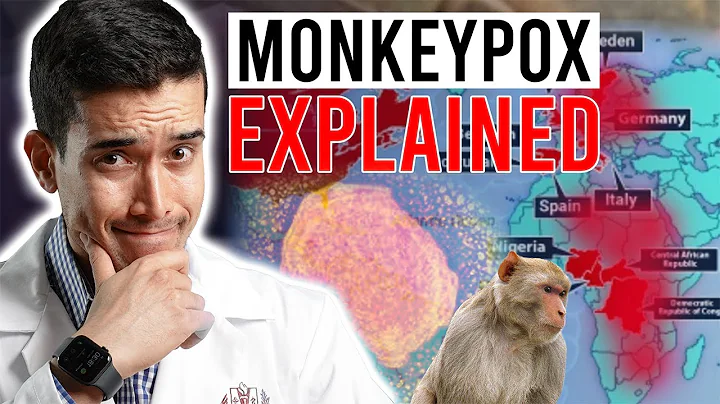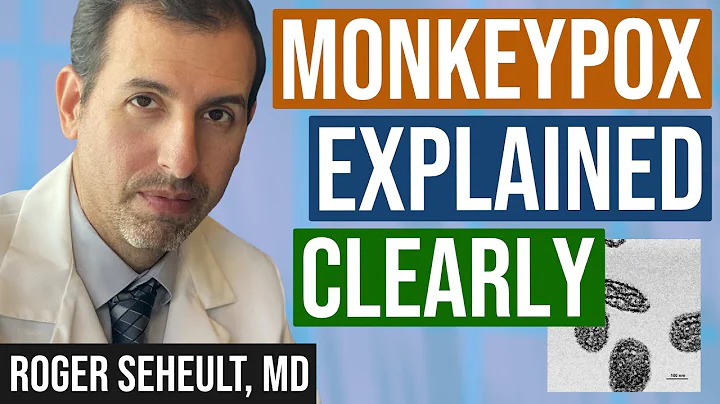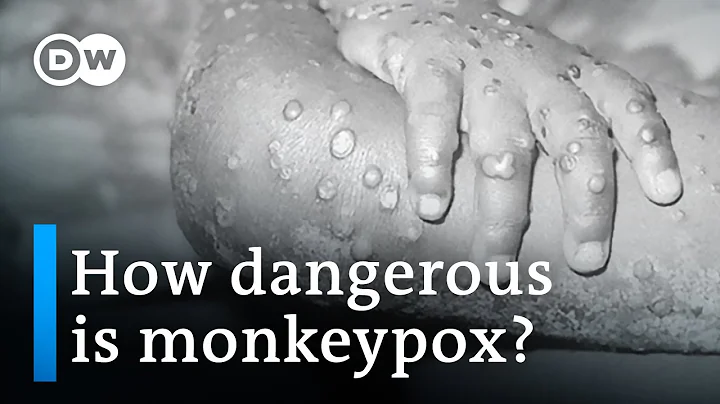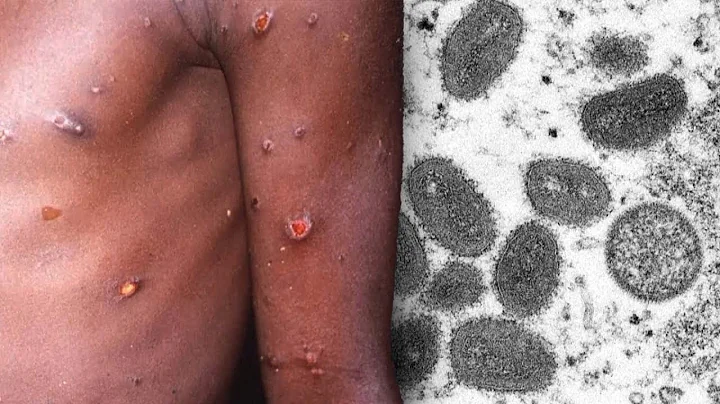Source: Science and Technology Daily
◎ Science and Technology Daily reporter Liu Xia
So far, at least 6 countries around the world have reported dozens of confirmed and suspected cases of monkeypox infection. Some of the cases have no obvious source, which means that the virus may be in It spreads quietly and covertly. In view of this, people's concerns about monkeypox are also increasing day by day.

Monkeypox virus particles captured by color transmission electron microscopy. Source: British "New Scientist" magazine website
What exactly is monkeypox? Are there treatments or vaccines currently available? Will it become another pandemic? The British "New Scientist" magazine website gave the answers to these questions related to monkeypox in a report on the 19th.
1 What is monkeypox? What are the symptoms?
Monkeypox is a disease caused by the monkeypox virus, which is commonly spread among monkeys in Central Africa and West Africa, but occasionally spreads to humans. In 1958, scientists first discovered the monkeypox virus in laboratory monkeys, and in 1970, the first human case of monkeypox infection was discovered in what is now the Democratic Republic of the Congo. The UK Health and Safety Authority (UKHSA) stated that the initial symptoms of monkeypox infection include fever, headache, muscle aches, back pain, swollen lymph nodes, chills and fatigue. Patients also sometimes develop a rash, usually first on the face and then on other parts of the body.
2How many cases are there currently?
A report list being compiled by researchers at the University of Oxford in the UK and Harvard Medical School in the US shows that there are currently 33 confirmed cases of monkeypox and 42 suspected cases worldwide.
There are 9 confirmed cases in the UK, most of which are in London. Portugal has 14 confirmed cases and 6 suspected cases. Spain has 7 confirmed cases and 17 suspected cases. The United States and Sweden have one confirmed case each. Italy has 1 confirmed case and 2 suspected cases. There are 17 suspected cases in Canada. Researchers believe that these cases may be just the tip of the iceberg, "The true picture may be more widespread than what we have discovered so far."
3 Are these cases related?
Researchers say it's still unclear.
The first confirmed case in the UK had traveled to Nigeria . The patient developed a rash on May 5 and was hospitalized on May 6. He has now fully recovered. UKHSA said that two other cases in the UK are related to the first case, but the four recently confirmed cases are not related to the previous cases. UKHSA's chief medical adviser Susan Hopkins said the monkeypox virus was spreading from person to person in countries with known confirmed cases of monkeypox. She said: "These latest cases, along with case reports from various European countries, confirm our initial concerns that monkeypox virus may be spreading within our communities."
UKHSA said that the recent cases in the UK mainly occurred among gay, bisexual men. Sexual intercourse and among men who have sex with men. "We particularly urge gay and bisexual men to be aware of any unusual rashes or lesions and to contact services immediately if something goes wrong," Hopkins said.
4 How is the monkeypox virus spread?
The World Health Organization says monkeypox can be spread through contact with large droplets exhaled by others, contact with infected skin lesions, or contaminated materials. Some may interpret this to mean that monkeypox virus is transmitted through the air, but the World Health Organization does not use this term.
The U.S. Centers for Disease Control and Prevention states that person-to-person transmission is thought to occur primarily through large respiratory droplets, which generally travel no more than a few feet and therefore require prolonged face-to-face contact.
UKHSA said monkeypox virus does not usually spread easily between people and the risk of infection to people in the UK "remains very low".
Monkeypox can also be spread through close contact between people or through contact with clothing, towels or bedding used by an infected person. UKHSA said it is not considered a sexually transmitted infection but can be spread through skin-to-skin contact.
In parts of West and Central Africa, humans can also contract the virus from infected wildlife. A person can become infected by the virus if they are bitten by an infected animal or if they touch the blood, body fluids, blisters, or scabs of an infected animal. Additionally, monkeypox may be spread by eating undercooked meat from infected animals.
5 How deadly is monkeypox?
Monkeypox infection is usually mild and most people recover within a few weeks without treatment.
The U.S. Centers for Disease Control and Prevention says In Africa, 1 in 10 people infected with monkeypox may die. WHO states that monkeypox virus has a West African clade and Congo Basin (Central African) clade. It has been recorded that the case fatality rate of the West African branch of the virus is about 1%, and the case fatality rate of its Congo Basin branch may reach 10%. At present, only the West African branch of the virus has been found in the UK, and virus sequencing information from other places is still unknown.
In addition, the World Health Organization says children infected with monkeypox are more likely to develop severe disease than adults. Infections during pregnancy may also cause complications, including fetal death.
6 What treatments or vaccines are available?
The antiviral drug tecovirimat is approved in the United States and Europe to treat monkeypox, smallpox and cowpox. In animal studies, tecoririmat significantly improved survival rates in animals infected with high doses of monkeypox. In addition, the Jynneos vaccine is approved in the United States and Europe to prevent monkeypox and smallpox in people over 18 years of age.
In addition, those old enough to have received the smallpox vaccine as infants should also get some protection. The United Kingdom and the United States ended routine smallpox vaccination in 1971 and 1972 respectively.
7 Have there been previous outbreaks outside Africa?
There have been several previous outbreaks of monkeypox outside of Africa, but these usually involved only a small number of cases and local transmission was very limited. For example, in 2021, the United Kingdom reported that a family of three was infected with monkeypox virus, and one of the members had traveled to Nigeria. In 2018, a person from Nigeria spread the virus to two people living in the UK, one of whom was a healthcare worker.
Africa has experienced larger outbreaks. For example, in 2001 and 2002, 485 cases and 25 deaths were reported in the Democratic Republic of Congo, where the virus was present in monkeys. In 2017 and 2018, Nigeria reported 122 confirmed or suspected cases, including seven deaths.
8 Is the latest epidemic caused by a new monkeypox strain?
This is still unknown. Several cases have been reported in multiple countries, suggesting that this strain is more transmissible than others, but chance events - such as the virus being carried by a "super-spreader" - can also help it spread more widely.
Researchers are sequencing samples of the virus, which will reveal whether the strain is significantly different from previously identified West African clade strains and whether all known cases are related.
9 Will it become another pandemic?
The expectation is that this monkeypox outbreak will be controlled through contact tracing, just as all previous monkeypox outbreaks have been controlled. The UK is offering the vaccine to contacts deemed to be at high risk of infection to help ensure the virus does not continue to spread.
While researchers have not completely ruled out the possibility of a pandemic, they consider the likelihood to be low. However, some researchers have previously warned that monkeypox is a growing threat. A 2018 paper stated: "Monkeypox is likely to emerge as an important human pathogen."
Source: Science and Technology Daily
